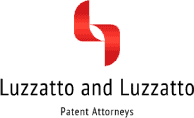


Israel's intellectual property regime has undergone favorable changes in recent years, but there are some persistent lacunae. Israel must prioritize intellectual property on the national agenda and allocate the proper resources to tackle violations on a scale befitting one of the world's leading technology-oriented economies.
Another important aspect of intellectual property is the untapped potential of the intellectual assets held by the State. On this count, the only remedy is to locate and identify the intangible assets that have economic potential and promote their commercial leverage.
What Needs To Be Done?
On the legal level—dealing with intellectual property laws differs from other disciplines heard by the courts, since it necessitates delving into scientific and technical topics as well as extensive judicial experience. The legal system must create a new culture where the State Prosecutor, the plaintiffs' attorneys, and the judges themselves "live" the subject of intellectual property and follow a clear policy intended to promote its protection. The policy must be jointly defined by the Ministry of Justice and the judicial system. As a crucial part of this process, we must raise awareness among judges with the aid of regular seminars on the subject and promote the training and appointment of judges qualified to arbitrate in intellectual property cases.
It is also imperative to strengthen the internal systems that grant rights in intellectual property (especially patents, trademarks and design) in order to encourage the public to take advantage of the legal tools at their disposal.
At the same time, action is required on the legislative level to ensure the ongoing revision of intellectual property legislation with the participation of the rights proprietors, especially in connection with problematic laws. Proceedings in investigation cases and the filing of indictments against rights infringers must be expedited (by the State Attorney's Office), including by invoking the Money Laundering Law.
Strengthening the enforcement system—the enforcement system requires additional manpower and tools—essential ingredients in any successful reform. Legislation should support the enforcement system with stiffer criminal sanctions. Japan and the U.S. have carried out successful reforms on this front both internally and in their dealings with other countries.
Proper enforcement cannot take place in a bubble. To prevent the import of counterfeit goods, cooperative mechanisms must be forged with other countries, legislation of trade agreements relating directly to intellectual property will require dedicated advocates, and we must join international treaties that relate to inter-state cooperation, create an extra-territorial enforcement system, and foster intimate cooperation with the Customs Authority.
It is plain that without an effective and aggressive enforcement system there can be no improvement in the situation as is today. Therefore, we recommend the following provisions:
- Subordinating all policemen in the districts to the national intellectual property unit and treating the unit as one combating economic crime.
- Allocating additional positions to the national intellectual property unit.
- Hastening the issuing of indictments, implementing the Arrest Law and creating a professional framework within the Police of prosecutors to deal with indictments relating to the matter and handle intellectual property cases.
- Increasing cooperation among municipal police stations on enforcement and as part of this, increasing the frequency of raids on channels of counterfeit goods.
- Collaborating with police forces in other countries.
- Allocating manpower to deal with the transfer of counterfeit goods from the Palestinian Authority areas.
- Setting up a collaborative mechanism with all enforcement agencies (Income Tax Authority, VAT, the Ministry of Economics and Trade and copyright proprietors)
- Allocating resources as part of the State budget and funding for at least 75 positions in the special police unit.
- Instructing the Income Tax Authority and VAT to increase preventive efforts and enforcement of prohibitions against the import of counterfeit goods via the ports using existing means and by the addition of new ones.
- Using Ministry of Industry, Trade and Employment inspectors to check businesses and markets and exercise their authorities, including confiscating goods and imposing fines.
- Integrating the Tax Authority in the overall activity and reviewing the issue as part of income tax audits of businesses known to be involved in producing, marketing and selling counterfeit goods in Israel.
- Regulating the phenomenon of photocopying and duplicating books in the possession of educational institutions, which today are deemed a copyright infringement, and payment of royalties for using them.
Learn from global experience—Violating intellectual property rights is no different from stealing any other kind of property. The fact that this does not involve the actual physical taking of an object but the production of a counterfeit product or a copy or a software download does not detract from the severity of the misdeed. Sometimes extensive information campaigns are necessary, such as the one undertaken by the Business Software Alliance (BSA) in order to convey a clear message to the public regarding the serious nature of the misdeeds. Criminal sanctions should be broad and enable trying anyone who is part of the chain of infringements, from the importer and storage people to the distributors and in extreme cases, the users (whether it is companies or individual people).
Intellectual property infringements are easy to commit, and sometimes even a tempting possibility. Without a strong and determined criminal enforcement system backed by a civil system that guarantees a golden path to compensation for those affected, it will not be possible to combat this problem.
England provides a good example for enhancing enforcement. After adopting the European Directive in 2004, it set up National IP Crime Strategy Committee (2004), headed by the English Patent Office, a committee tasked with addressing criminal cases involving intellectual property infringements. The committee’s work led to the conclusion that in order to combat counterfeit and pirate copies, it is extremely important to set up an intelligence arm that will coordinate the information coming in from the different law enforcement agencies overseeing import methods, manufacturing, transport and storage of counterfeit intellectual property goods. Hence the Tellpat Intelligence Database was set up under the auspices of the British Patent Office, which oversees all information the authorities have on intellectual property infringements. Notably, the British committee, like its counterparts in the U.S. and Japan, also publishes an annual report describing the achievements relating to enforcement in England during the preceding year.
Education and information—We can learn from the experience of the U.S. and Japan, two countries that worked to encourage the creation of intellectual property in academic institutions and in national research institutes, offering incentives sometimes subsidized by the government and with greater cooperation among the research institutes themselves. At the same time, an educational program was launched, distributed information, and increased awareness of the importance of creating and protecting original work. The applicable lessons derived from these programs are the fundamental cooperation with local industry, government-backed encouragement of education on the subject, and an institutional war against violations.
Of no less importance than legal changes is working towards a shift in public awareness to promote mindfulness about safeguarding copyright in Israel and the necessity of avoiding participation in the illegal enterprise. In addition, the government should work to make lessons on intellectual property and sensible consumer habits part of our schools' curriculum, and to increase awareness of this subject among teaching staff.
Balance between short – and long-term needs—The U.S., Japan and European Union countries are contending, as are many countries around the world, with limited resources in the public sector. However, budgetary concerns do not lead these countries to favor short-term goals, such as expropriation of intellectual property rights and supplying equipment and information to the public for a reduced price. These countries understood the importance of, and implemented policies with a balance between innovation and access.
Coordination of government activities—Until there is a decision to set up a central body to be responsible for promoting the issue of intellectual property protection in Israel, the matter must remain the province of various government ministries. Therefore, during the first stage, it is advisable that the prime minister should act immediately to form a ministerial committee headed by the Minister of Justice. This will be a committee to prepare an operating plan and guide the various government offices in order to streamline and focus the advancement of these issues. To do so, the committee can look at reforms already instituted in other places around the world
Missed opportunities: leveraging existing intellectual property assets—The financial losses due to the improper handling of intellectual property do not simply end in the area of counterfeits and duplications, but also extend to the lack of sufficient leverage for intellectual property owned by the state. The State Comptroller already noted shortcomings in the work of the university technology transfer companies. The Finance Ministry’s accountant general has already warned that the State is not doing enough to promote the intellectual property found in government hospitals. An internal report by the defense establishment (the Tishler Committee) determined that the State is not doing enough to leverage the intellectual property being created within the walls of Israel Defense Authority.

Relevant Articles
Regarding Patent Term Extensions in Israel
